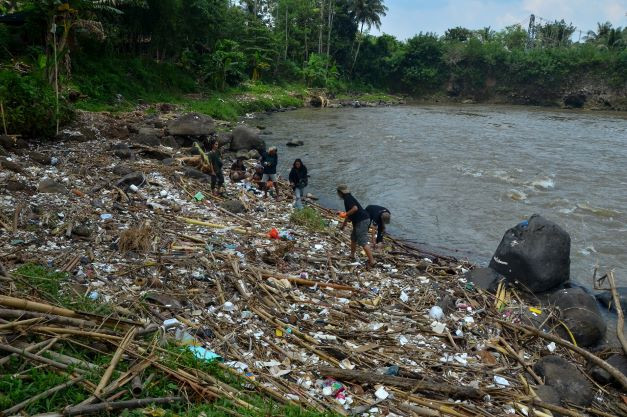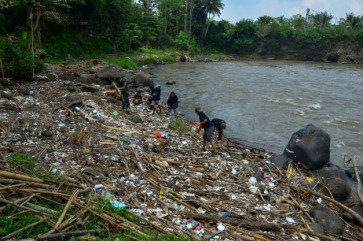Popular Reads
Top Results
Can't find what you're looking for?
View all search resultsPopular Reads
Top Results
Can't find what you're looking for?
View all search resultsTransforming water infrastructure strategies in Indonesia
While the government has allocated significant resources in the state budget, additional funding sources are needed to achieve long-term water security.
Change text size
Gift Premium Articles
to Anyone
Indonesia, an archipelago nation blessed with abundant rainfall, faces a paradoxical challenge: despite its water wealth, there are still certain areas in the country that lack access to safe and reliable drinking water.
This challenge stems from uneven distribution, aging infrastructure and growing demand. Transforming water infrastructure development is crucial for Indonesia's future, and recent initiatives offer promising steps toward a more sustainable and equitable water future.
While Indonesia boasts a water surplus, distribution remains a major hurdle. The government acknowledges the nation lags behind in water infrastructure compared with regional peers. National water coverage sits at around 50 cubic meters per capita per year, far below the 1000s seen in developed countries.
This uneven distribution translates to millions lacking access to clean water, particularly in rural and remote areas. Often, these communities rely on groundwater sources that can be contaminated or insufficient during dry seasons.
Adding to the challenge is aging infrastructure. Many dams, reservoirs and pipe networks are decades old, leading to inefficiencies like leaks and disruptions. It highlights the need to optimize existing infrastructure alongside expansion efforts. Leaks in distribution networks can result in significant water loss. The current national level of water loss, Non-Revenue Water, still exceeds standard limits. As reported by the official statement from the Public Works and Housing Ministry website, the national water loss rate is still 33.7 percent. This not only reduces the available water supply but also increases treatment costs.
However, amid the challenges, opportunities abound. The Indonesian government, recognizing water as a top development priority, has implemented several key initiatives this year. The government has issued regulations focusing on maximizing the potential of existing water resources infrastructure.
This includes proper maintenance and rehabilitation of dams, reservoirs and water treatment plants. The Public Works and Housing Ministry is collaborating with private sector companies with expertise in leak detection and repair technologies. Additionally, they are piloting district metered areas (DMAs) in selected regions.



















